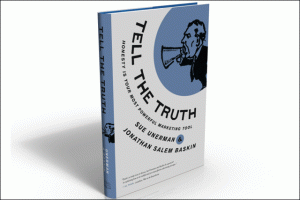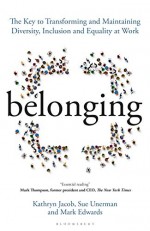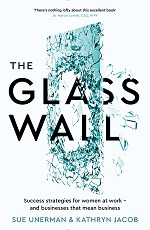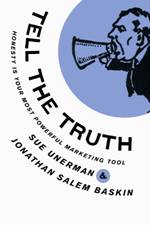In a business that is under disruption, sometimes the best decision you can make is to be kind.
At the IPA conference for International Women’s Day one of the key note speakers Pinky Lilani CBE, Founder, Women of the Future, talked about the importance of kindness in modern leadership. She said that her business had been built on the kindness of others. She’s created the Kindness and Leadership 50 leading lights, and points out that kindness is seldom celebrated.
The phenomenal early success of one icon of British TV represented a prominent example of the power of kindness in popular culture. Sandy and Noel are mischievously anarchic. But they are not as kind as Mel and Sue.
Remember this season? Watching diffident Rahul win Bake Off was a great pleasure, finally an introvert in the spotlight for success. It was one of the highlights of archetypal British TV. Ratings were strong (if not quite BBC level), the bottoms are no longer soggy, but everyone had a lot of fun with Veganism.
One missing ingredient though is the kindness of Mel and Sue, both to each other – after all there’s a genuine relationship there not a manufactured one – and to the candidates.
Sue revealed that she and Mel walked off the set during Bake Off‘s first season because the producers were trying to coax human-interest drama—and the inevitable tears—out of contestants. “We felt uncomfortable with it, and we said ‘We don’t think you’ve got the right presenters,'” Sue told the Telegraph. “I’m proud that we did that, because what we were saying was ‘Let’s try and do this a different way’—and no one ever cried again. Maybe they cry because their soufflé collapsed, but nobody’s crying because someone’s going ‘Does this mean a lot about your grandmother?'” Bringing up dead relatives at stressful times is a time-honored technique for introducing tension into a television show, but it’s no way to treat your family.
Further than that when contestants did cry—out of frustration or disappointment, generally—Mel and Sue would stand near them and use un-airable language so the embarrassing footage couldn’t make it into the final edit. ” Sue was reported as saying: “If we see them crying or something, Mel and I will go over there and put our coats over them, or swear a lot because we know then that the film won’t be able to be used.”
Kindness is perhaps the polar opposite of traditional patriarchal business values of ruthlessness and power politics. Just as we wrote in The Glass Wall, success strategies for women at work and businesses that mean business, the toxic masculinity that pervades many organisations excludes all kinds of talented people from developing their full potential at work. Pinky said: “With kindness comes a feeling that is not easily forgotten. Think about customer service that has delighted you; think about a boss who inspired you to be where you are today; think about a brand or business you are loyal to because they seem to genuinely care. Kindness enhances the best qualities in people; it disarms a disagreement and it brings about collaborations which you may never have dreamed possible.”
Think about your own career path. It’s absolutely true that you will never forget the kindness of others. As Pinky added on IWD you also never forget an unkindness.
Being unkind is often unthinking and casual. But never to the recipient.
Kindness depends on there being nothing immediately in it for you. #Payitforward.





“All my best decisions are made with heart, guts and taste”
Tuesday, April 30th, 2019Instinct or algorithm?
It’s a question that Karen Blackett OBE asked her three interviewees at her Chancellor’s Dinner at Portsmouth University last month.
Kanya King OBE, supercool founder of the MOBOS said instinct. Sir Lenny Henry CBE fresh from raising money for Comic Relief said instinct too, but Tom Ilube OBE, tech entrepreneur, as you might predict (using your instincts) chose the algorithm.
Every time I jump in the car the same question comes up. Should I turn on Waze? Should I use my instincts? Surely Waze’s algorithm knows more than me, and, so it proves until, there’s an unexpected road closure and you wind up with me and everyone else trapped in the “ Wazelocked” traffic.
Karen asked her guests about cheerleaders in their lives. Lenny Henry talked about the big break he got from Chris Tarrant. When Lenny was failing on breakfast show Tiswas, Tarrant took him for lunch and told him he was failing to make the transition to presenter from stand-up and would soon be off the show. He suggested that Lenny pivot and try a different approach, and Lenny listened, followed his advice and soon this turned him into a star. Karen asked him why he thought that Chris Tarrant had bothered to stage this intervention. Lenny said: “He saw the potential in me”. Tarrant gave him a leg up. Tarrant saw something in Lenny Henry even when he was screwing up and trusted his instincts too. Don’t trust that any algorithm could have delivered on that potential fame, and a career that aside from the laughter has helped raise over £1bn for Comic Relief.
A black-box thrown into a tech stack can certainly do a lot of automated heavy-lifting, but there is still a need for human intervention to guide what the algorithms are trying to achieve as well as augmenting their outputs with human ingenuity and inspiration. Delegating this responsibility to an opaque black-box to make all the decisions is short sighted – as the algorithm is only a part of the process. It cannot define what data to assess, how that data should be featured and the interpreting of the results in-line with commercial goals.
Media delivery has been transformed in this decade because of algorithms and the business models will continue to change. As AI grows in real functionality many traditional aspects of media planning and trading will fade. But the industry must stay rooted in the real world, where instincts and creativity will always play a crucial role. The digital ad bombardment of consumers is just one outcome from too much faith in algorithms, and marketing chiefs are right to question this. Real world planning for comms using instinct as well as data to drive competitive advantage has never been more important. As Jeff Bezos says in the opening quotation: use the data but trust your heart.
Posted in MediaComment | No Comments »